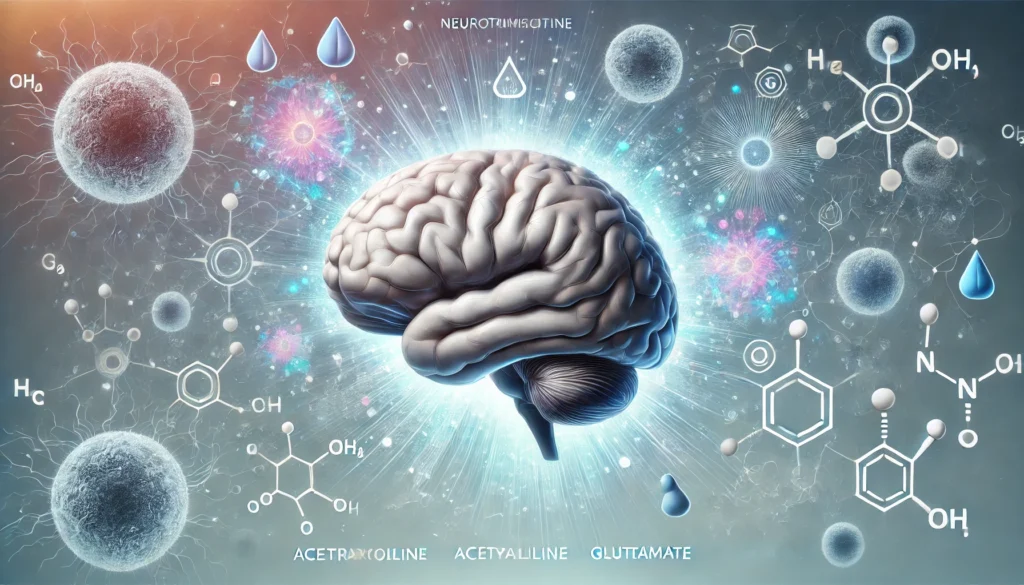Dementia is a complex condition. It affects millions worldwide, impacting cognitive function and quality of life.
Understanding dementia medications is crucial. It can help manage symptoms, slow disease progression, and improve daily functioning.
This comprehensive guide aims to demystify dementia medications. It will delve into their types, uses, benefits, and potential side effects.
We’ll explore the science behind these medications. We’ll also discuss how they work to manage dementia symptoms.
The guide will also touch on the role of holistic and alternative approaches. These can complement traditional treatments, offering a more rounded approach to managing dementia.
Whether you’re a fitness enthusiast, health enthusiast, or a medical patient, this guide is for you. It’s designed to provide practical advice and insights into managing dementia through medication.
By the end of this guide, you’ll have a better understanding of dementia medications. You’ll be equipped with knowledge to make informed decisions about your health or the health of a loved one.
Let’s embark on this journey to understand dementia medications better. It’s a step towards improved cognitive health and overall wellbeing.
You may also like: Top Memory Supplements to Combat Dementia
What is Dementia and How Does it Affect Cognition?
Dementia refers to a group of symptoms affecting memory, thinking, and social abilities. It’s not a single disease but a broad term for cognitive decline. The symptoms of dementia can vary significantly, depending on the cause.
The condition gradually reduces the ability to perform everyday activities. It affects multiple brain areas, leading to memory loss and impaired judgment. Patients may struggle with planning, problem-solving, and even communication.
Various types of dementia exist, each with distinct characteristics. The most common form is Alzheimer’s disease, known for its impact on memory. Vascular dementia, caused by reduced blood flow to the brain, is another type. Lewy body dementia and frontotemporal dementia also rank among the prevalent forms.
Common cognitive symptoms include:
- Memory loss and confusion
- Difficulty with language and communication
- Disorientation about time and place
- Impaired reasoning and judgment
- Changes in mood and behavior
Dementia not only affects cognitive function but also alters emotional states. Patients may experience depression, anxiety, or aggression. It’s important to understand these changes to provide appropriate care.
The progression of dementia varies from person to person. While some may experience rapid decline, others progress slowly. Early diagnosis is crucial for managing symptoms and planning future care. By understanding its impact on cognition, we can better support those living with dementia.
Types of Dementia and Their Treatments
Dementia manifests in various forms, each with its unique challenges. Understanding these types is essential for effective treatment. The most prevalent type is Alzheimer’s disease, which primarily impacts memory and cognitive functions. It progresses slowly but steadily, affecting daily tasks.
Vascular dementia results from impaired blood flow to the brain. It’s the second most common type, often linked to strokes. Symptoms can appear suddenly or gradually, depending on the cause and severity of the blood flow issues.
Lewy body dementia is characterized by abnormal protein deposits, known as Lewy bodies, in the brain. This type often leads to sleep disturbances, hallucinations, and movement issues, alongside cognitive problems.
Another form, frontotemporal dementia, impacts the brain’s frontal and temporal lobes. It usually affects behavior and language more than memory. This type is often diagnosed at a younger age compared to others.
When addressing dementia, treatments vary according to the type diagnosed. There’s no one-size-fits-all approach. Instead, tailored plans aim to manage symptoms and improve quality of life.
Common treatments for dementia include:
- Medications: Aim to manage symptoms or slow progression.
- Non-drug therapies: Address behavioral symptoms.
- Lifestyle changes: Diet, exercise, and mental activities to enhance brain health.
For Alzheimer’s, cholinesterase inhibitors and memantine are commonly prescribed. Vascular dementia treatments focus on managing underlying cardiovascular conditions. Lewy body dementia may require medications to manage cognitive symptoms and motor functions. Frontotemporal dementia lacks specific treatments, so care focuses on symptom management.
While medications play a vital role, they aren’t the sole treatment method. Combined with lifestyle adjustments and supportive therapies, they help improve everyday life. A holistic approach, considering the individual’s needs and dementia type, is crucial for optimizing care.
How Dementia Medications Work
Understanding how dementia medications work helps in appreciating their role in symptom management. These drugs don’t cure dementia. Instead, they aim to manage symptoms and slow progression.
Most dementia medications focus on neurotransmitters. Neurotransmitters are chemicals in the brain that transmit signals. In dementia patients, these signals often become disrupted.
Cholinesterase inhibitors, for example, help maintain levels of acetylcholine. Acetylcholine is a neurotransmitter important for memory and learning. By inhibiting its breakdown, these drugs improve communication between nerve cells.
Memantine, another medication type, works differently. It regulates the activity of glutamate, another crucial neurotransmitter. Glutamate, when at excessive levels, can damage nerve cells and impede cognitive function.
Doctors carefully select medications based on a patient’s symptoms and dementia type. Personalized treatment plans optimize the effectiveness of the chosen drug. While dementia medications can’t halt progression, they offer hope by improving life quality.
Cholinesterase Inhibitors and Their Role
Cholinesterase inhibitors are often a first line of treatment. They are suitable for mild to moderate dementia, especially in Alzheimer’s. These drugs include donepezil, rivastigmine, and galantamine.
These inhibitors work by blocking the breakdown of acetylcholine. Acetylcholine is crucial for memory and alertness. By preserving this neurotransmitter, the drugs enhance cognitive functions.
Patients using cholinesterase inhibitors may notice improvements in thinking and behavior. However, these benefits vary. Not everyone will respond the same way, and effectiveness can diminish over time. It’s important to monitor changes and adjust treatment as needed.
Memantine and Combination Therapies
Memantine addresses moderate to severe dementia symptoms. It targets glutamate, ensuring that its levels remain balanced. Too much glutamate can lead to excessive nerve signaling, contributing to cognitive decline.
Memantine is often prescribed when cholinesterase inhibitors are no longer sufficient. It can be used alone or in combination with other dementia drugs. This combination enhances treatment effectiveness.
Using memantine alongside cholinesterase inhibitors can extend benefits for some patients. Together, these medications cover different aspects of neurotransmitter activity. They aim to provide a more comprehensive approach to managing dementia symptoms. With careful management, these therapies offer a better life quality for many patients.

The Four Main Anti-Dementia Drugs Explained
Dementia treatments often center around four key medications. These are Donepezil, Rivastigmine, Galantamine, and Memantine. Each has a unique mechanism of action to help manage symptoms.
Donepezil
Donepezil is widely prescribed and known for treating Alzheimer’s disease. It works by increasing acetylcholine levels in the brain. This helps improve communication between nerve cells, which enhances memory and cognition.
Patients may experience an improvement in daily activities and mental sharpness. However, not all individuals have the same response. The effectiveness can vary based on progression stages.
Rivastigmine
Rivastigmine functions similarly to Donepezil, but it is also used for Parkinson’s disease dementia. It inhibits enzymes that break down acetylcholine, thus bolstering cognitive function. Rivastigmine is available in both pill and patch form.
The patch option can be beneficial for those who struggle with swallowing pills. Users may notice steadier cognition and less behavioral disruption, which is critical in later stages.
Galantamine
Galantamine offers a dual action by enhancing acetylcholine levels and receptor activation. This dual action aids cognitive processing and improves clarity. Typically, it’s prescribed for mild to moderate dementia forms.
Galantamine encourages more consistent cognitive performance, though side effects might occur. Close monitoring ensures timely adjustments and better tailored treatment outcomes.
Memantine
Memantine differs by targeting glutamate levels instead of acetylcholine. It’s effective in moderate to severe Alzheimer’s cases by protecting the brain from nerve damage.
Memantine’s influence can improve awareness and reasoning capabilities. It is sometimes used in combination with drugs like Donepezil. This combination can provide a balanced therapeutic approach.
Summary
Here’s a quick recap of the four anti-dementia drugs:
- Donepezil: Enhances acetylcholine for Alzheimer’s disease.
- Rivastigmine: Suitable for both Alzheimer’s and Parkinson’s dementia.
- Galantamine: Provides dual effects on neurotransmitter activity.
- Memantine: Regulates glutamate for severe dementia cases.
These medications are crucial tools in managing dementia. Still, individual responses differ, necessitating personalized and adaptive treatment strategies. Regular evaluations can determine the best pathway for maintaining cognitive health.
Managing Side Effects of Dementia Medications
Dementia medications offer significant benefits, but they can also come with side effects. Understanding these effects is crucial. It allows patients and caregivers to manage them effectively.
Several common side effects can arise from taking dementia meds. These can include gastrointestinal issues, dizziness, and headaches. Patients may also experience sleep disturbances.
Effective management strategies can mitigate these side effects. Sometimes, minor adjustments in dosage or timing can make a big difference. Consultation with healthcare providers is essential.
In addition to medical advice, lifestyle adjustments may help. For instance, dietary changes can reduce gastrointestinal discomfort. Ensuring a safe environment can alleviate dizziness-related risks.
Common Side Effects and How to Handle Them
Gastrointestinal issues, like nausea or diarrhea, are prevalent with dementia meds. Taking medications with food can help. Additionally, staying hydrated is important.
Headaches and dizziness may be another concern. These can often be managed by adjusting the dosage. Patients should also avoid sudden movements to reduce dizziness.
Sleep disturbances may improve with proper sleep hygiene. Creating a calming nighttime routine can help promote restful sleep. Discussing alternatives with a healthcare professional is also beneficial when side effects persist.
Effective management of side effects not only increases comfort but also enhances the effectiveness of dementia treatments. With personalized care, individuals can achieve better health outcomes and quality of life.
Alternative and Holistic Approaches to Complement Medication
Incorporating alternative and holistic approaches can enhance the management of dementia. These methods can improve quality of life and may support traditional treatments. It is important to consider these options in a comprehensive care plan.
Holistic practices focus on the whole person, not just symptoms. Complementary therapies like acupuncture, aromatherapy, and meditation have shown promise in dementia care. These therapies aim to enhance mental wellbeing and reduce stress.
Certain natural supplements may offer additional benefits. Supplements such as omega-3 fatty acids, ginkgo biloba, and vitamin E are popular for cognitive support. However, patients should consult healthcare providers before starting any new supplement.
A holistic approach also emphasizes lifestyle modifications. Engaging in regular physical activity, maintaining a balanced diet, and participating in social activities are critical components. These changes can positively influence cognitive health and complement medicinal treatments.
Here are some key alternative therapies to consider:
- Acupuncture: May help reduce anxiety and agitation.
- Aromatherapy: Utilizes essential oils to promote relaxation.
- Meditation: Supports stress reduction and mental clarity.
- Supplements: Omega-3s and ginkgo biloba for cognitive health.
Using alternative therapies alongside conventional medication offers a robust strategy for managing dementia. Tailoring a plan that includes both can provide a comprehensive pathway to improved cognitive health and wellbeing.

The Impact of Lifestyle on Medication Efficacy
Lifestyle choices significantly affect how well dementia medications work. Factors such as diet, exercise, and stress play vital roles in medication effectiveness. Engaging in healthy habits can amplify the benefits of prescribed treatments.
Physical exercise is crucial for cognitive health. Regular physical activity enhances brain function and may slow dementia progression. Exercise improves blood flow to the brain, potentially increasing the efficacy of dementia medications.
Diet also impacts cognitive abilities and medication efficiency. A balanced diet rich in antioxidants and omega-3 fatty acids supports brain health. Foods such as fish, nuts, and leafy greens provide essential nutrients that work synergistically with memory medications.
Incorporating stress-management techniques is equally important. High stress levels can counteract the benefits of dementia drugs. Practices like yoga, meditation, or deep breathing can mitigate stress and improve overall treatment outcomes. An integrative approach helps create an environment where medication can work optimally.
The Importance of Early Diagnosis and Personalized Care
Detecting dementia early is crucial for effective management. Early diagnosis allows for timely intervention, which can slow disease progression. Recognizing symptoms early can lead to better treatment outcomes and improved quality of life.
Personalized care is essential in dementia treatment. Each individual’s experience with dementia is unique, requiring tailored approaches. Customizing treatment plans ensures that interventions meet the specific needs of the patient.
Combining medical and holistic strategies can maximize benefits. Personalization encompasses medication choices, therapy types, and lifestyle recommendations. By focusing on individualized care, it’s possible to enhance the effectiveness of treatment and support overall wellbeing.
Future Directions: Research and Emerging Treatments
The landscape of dementia treatment is evolving rapidly. Researchers are striving to develop more effective therapies. Advances in science and technology offer hope for new breakthroughs.
Emerging treatments focus on targeting underlying disease processes. Scientists are exploring drugs that modify disease biology rather than just alleviating symptoms. This approach could potentially halt or slow disease progression.
Gene therapy is a promising area of research. By altering genetic material, it may be possible to correct or mitigate genetic contributors to dementia. Although still in early stages, this strategy holds immense promise.
New research is also delving into neuroprotective compounds. These compounds aim to protect brain cells from damage and degeneration. As research progresses, future treatments might significantly enhance the quality of life for people with dementia.
Practical Tips for Patients and Caregivers
Managing dementia involves navigating complex challenges. Patients and caregivers need practical strategies to enhance quality of life. Personalized approaches can make a significant difference.
Key areas include medication management, lifestyle changes, and leveraging support systems. These components can greatly impact daily living and health outcomes. Focusing on these aspects leads to better disease management.
Consider implementing the following tips to manage dementia effectively:
- Establish a consistent daily routine.
- Keep a medication diary to track doses.
- Use reminders and alarms for medications.
- Stay engaged with mental exercises.
- Join a support group for resources.
Seeking professional guidance is also crucial. Healthcare providers can offer tailored advice. They can adjust medications and recommend suitable therapies.
Medication Management and Adherence
Medication management plays a vital role in treating dementia. Setting up a pillbox system can help prevent missed doses. Synchronizing medication schedules with daily activities aids adherence.
Involving caregivers in medication oversight is beneficial. They can monitor and remind patients, ensuring consistency. Open communication about any side effects with healthcare providers is essential for adjustments.
Lifestyle Modifications and Support Systems
Lifestyle changes support overall well-being in dementia care. Physical activity and balanced diets promote brain health. Regular exercise enhances cognitive functions and slows mental decline.
Support systems provide critical emotional and practical aid. Family, friends, and community resources can assist in caregiving duties. Establishing a reliable network eases caregiver stress and enhances patient care.

Conclusion: Navigating Dementia Treatment for Better Outcomes
Understanding and managing dementia is a complex journey. Medications play a key role in this process, offering hope for many. However, their effectiveness can vary from person to person.
Personalized treatment plans, regular medical assessments, and caregiver support are crucial. Combining these with lifestyle modifications leads to optimal outcomes. Awareness and proactive management are your allies in navigating dementia treatment. Continuous learning and adapting strategies ensure improved quality of life for patients and their families.
Further Reading
NIH: Drug treatment for people with dementia
NYULH: Medication for Dementia
Webmd: What Are the Treatments for Dementia?
Important Note: The information contained in this article is for general informational purposes only, and should not be construed as health or medical advice, nor is it intended to diagnose, prevent, treat, or cure any disease or health condition. Before embarking on any diet, fitness regimen, or program of nutritional supplementation, it is advisable to consult your healthcare professional in order to determine its safety and probable efficacy in terms of your individual state of health.
Regarding Nutritional Supplements Or Other Non-Prescription Health Products: If any nutritional supplements or other non-prescription health products are mentioned in the foregoing article, any claims or statements made about them have not been evaluated by the U.S. Food and Drug Administration, and such nutritional supplements or other health products are not intended to diagnose, treat, cure, or prevent any disease.


